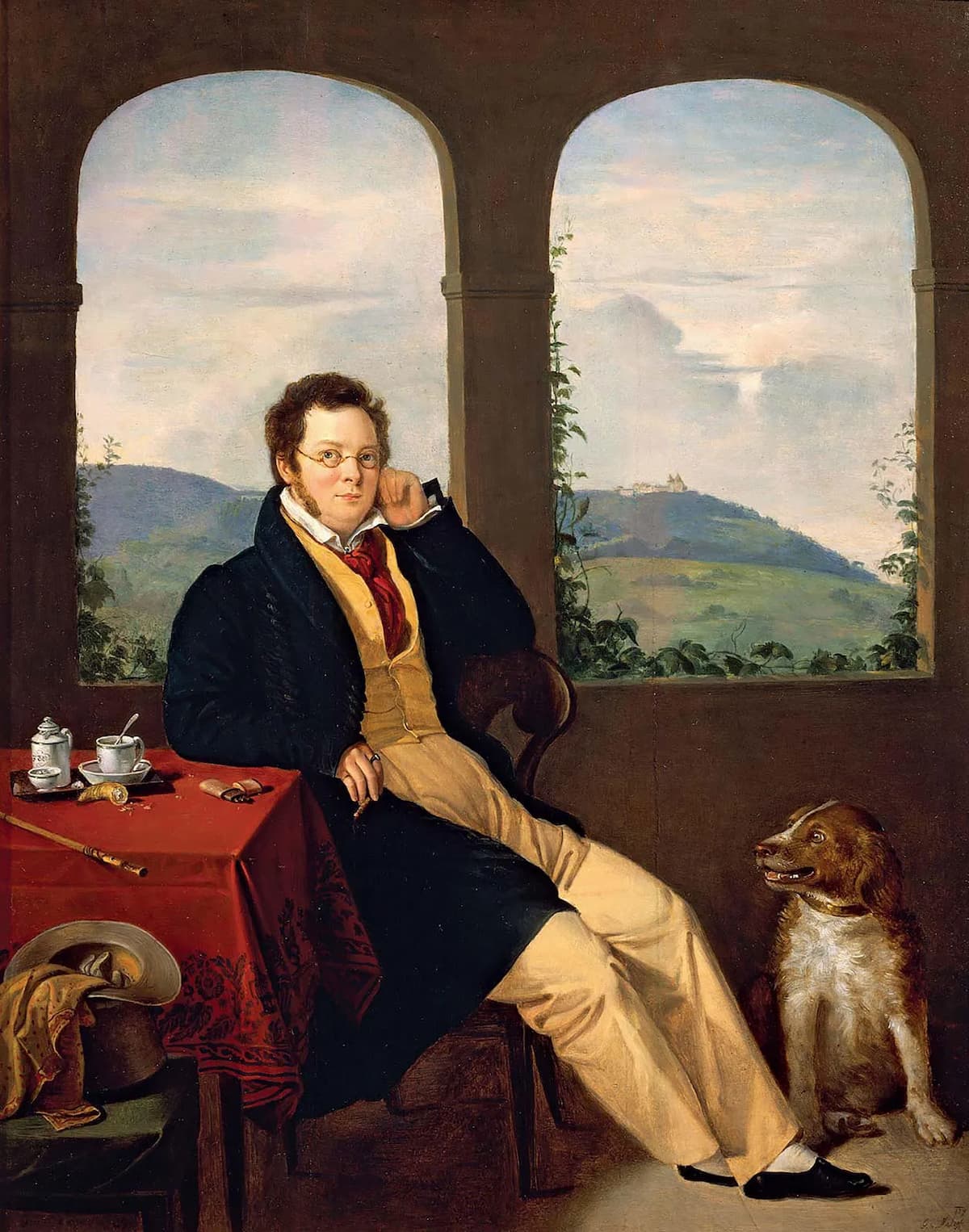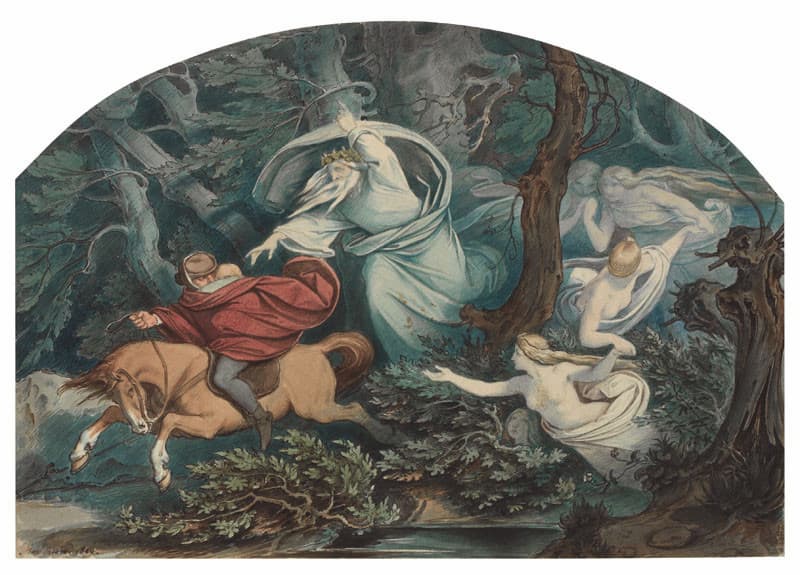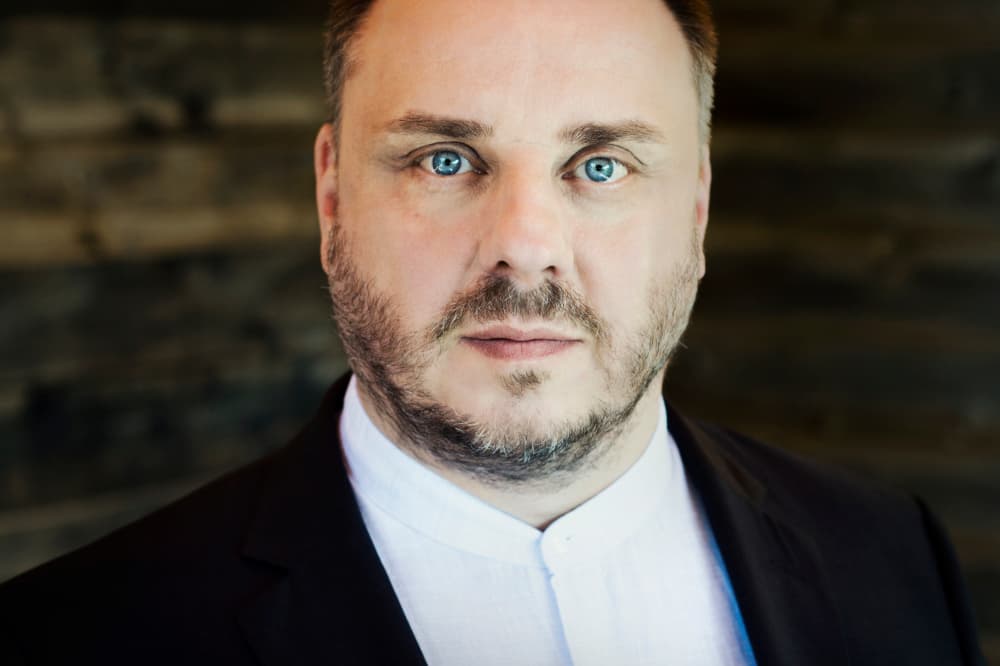One of the great delights of Franz Schubert’s setting of Goethe’s poem Erlkönig is all the voices that appear in the work: in the vocal line, we have the narrator, the father, the child, and the Erl-king. The piano is the horse. In those 5 voices, the entire drama of the poem is laid out.

Gábor Melegh: Franz Schubert, 1827 (Hungarian National Gallery, Budapest)
The horse starts, urgent, rushing and then the narrator comes in, describing the nighttime ride, the anxious father, his son in his arms. The father and child speak because the child is seeing things invisible to the father: the Erl-king is there with his court and is whispering to him. The Erl-king’s voice, light and enticing, promises the child games and flowers, and magnificent clothing. The father, darkly emphatic, explains that it’s mist, it’s the wind, it’s a tree. The child grows in fear until at last, he cries out that the Erl-king has taken him. The father arrives at his destination but his child has not survived his encounter with the supernatural and lies dead in his arms.

Moritz von Schwind: Illustration to Goethe’s Poem ‘Erlkönig‘, 1849 (National Gallery Prague)
Franz Schubert: Erlkönig, Op. 1, D. 328 (Dietrich Fischer-Dieskau, baritone; Gerald Moore, piano)
Schubert’s setting, although the best known to modern audiences, was not the only setting of this text – nearly 35 other composers, most in the 19th century. Most settings are for voice and piano but there are other combinations: voice and guitar; soloist, men’s choir, piano; three singers (one singing the father, one the child, and a third the Erl-king); and a 2002 setting for chorus and string quartet.
We heard a recent recording of the Schubert song arranged for baritone and orchestra. Given how dramatic the piano line is in the Schubert setting, we were interested to hear what an orchestra might do with this work. The baritone Matthias Goerne sings an arrangement made by Alexander Schmalcz, his long-time accompanist. For Schmalcz, the advantage of the orchestra was the broader tonal colour palette available to him. Full voices of instruments, muted instruments, a greater emphasis on the bass line, and other orchestral ways of extending the piano’s sound could be used.
For Goerne, Schubert’s setting of Lied strikes ‘a perfect balance between intellectuality and the greatest naturalness. With Schubert, even the most complicated melodies and forms sound entirely natural’. Schmalcz uses that naturalism in his arrangement of Erlkönig, where, at times, only the timpani and double bass sound, creating a low murmur.
Mount your orchestral horse and take your child to safety, if you dare.

Matthias Goerne, 2020 (photo by Caroline de Bon)
Franz Schubert: Erlkönig, Op. 1, D. 328 (arr. A. Schmalcz for voice and orchestra) (Matthias Goerne, baritone; Bremen Deutsche Kammerphilharmonie; Florian Donderer, cond.)
But, does it work? For me, the loss of the piano/horse changes this from an urgent ride through the dark and stormy night of the wild forest into something more like a symphonic poem – it’s not just the horse that’s in the accompaniment but also the forest and the mist and the invisible spirits that bedevil the child, and I’m not sure we need that. Our focus shifts from the horse and rider and considers the situation as a whole.
For more of the best in classical music, sign up to our E-Newsletter



